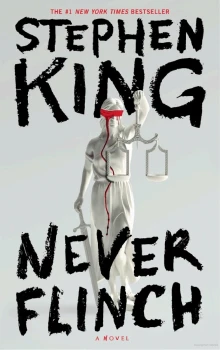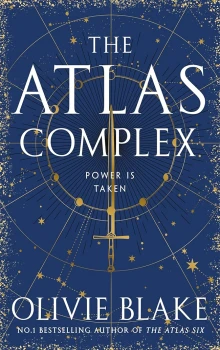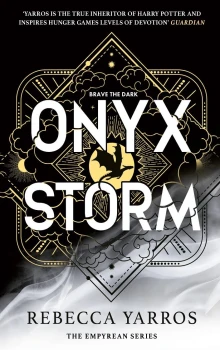Chapter 6
1
After a string of pleasant May weather, Monday the 19th dawns bleak and drizzly. While Holly is doing more insurance paperwork (and struggling to stay awake; she has a problem with rainy Mondays), she gets a call on her personal. It’s Izzy.
“I’ve got something for you, but I don’t want to send it by text or email. Those things can come back to haunt lowly bureaucrats like me. Can you come see me?”
Any excuse to ditch the paperwork is a good excuse. Holly asks if Izzy is at the cop shop.
“Nope. Bell College. Stucky Memorial Gym.”
“What are you doing there?”
“Long story. I’ll tell you when you get here.”
2
Holly finds Izzy in the Bell College fieldhouse, dressed in sweatpants, sneakers, and a Police Department tee. Her hair is tied back and she’s wearing a fielder’s glove on her left hand. Tom Atta is crouched down about forty feet away. He pounds his fist into a catcher’s mitt, then holds it up at chest level. “Throw the dropper. You’re warm enough. Bring it, Iz.”
Izzy’s more than warm enough, Holly judges; there’s a tree of sweat down the back of her shirt as she winds up and lets loose. The ball starts out high, probably out of the strike zone, then drops what looks like three inches. It’s like a magic trick.
“Nice one,” Tom calls, “but you have to start it out lower, or else it’s gonna wind up in some fireman’s wheelhouse. One more.”
He tosses the ball back. This time the pitch she throws starts out at the height of an imaginary batter’s upper arms, then does that same crazy three-inch drop.
“Perfect,” Tom says, rising from his crouch with a grimace. “If they can hit that, probably they won’t, but if they do, they’ll beat it into the ground. Save your arm. Your company’s here.”
“Save your knees, old fella,” Izzy says with a grin. She takes a return throw from Tom and walks over to Holly. “We’d be outside on the softball field, if not for the rain.” She flaps her shirt against her neck. “This place is too hot.”
“What exactly are you doing?” Holly asks.
“My master’s bidding.”
Tom joins them. “She means Warwick. Captain of this year’s PD softball team. Also our boss.”
Izzy leads them over to the bleachers and sits down, rubbing her shoulder. “Lew has drafted me to pitch in this year’s Guns and Hoses game because Dean Miter—who was supposed to pitch—broke his hand in a bar fight downtown.”
“The bar’s called Happy, but Dean ain’t,” Tom says.
Holly knows the bar well but doesn’t say so. Tom takes off his mitt and shakes his hand in the air. The palm is red. “You can really bring it when you get warmed up, Iz.”
“I’ll choke once I’m facing real batters,” Izzy says glumly. “I haven’t pitched since college, and that was a long time ago.”
“That dropper’s still nasty,” Tom says. “There’s your out pitch.”
Holly knew Izzy was in shape, but this side of her—the athletic side—is a surprise.
Izzy gets up, stretches, and plants her fisted hands in the small of her back. “I’m too old for this shit. Come with me, Holly.”
Izzy leads her into the women’s locker room. Izzy spins the combo on one of the lockers. Her street clothes are hanging inside, along with her Glock. Her purse is on the shelf. She rummages and brings out a folded sheet of paper. “Here. If you get caught with this, you didn’t get it from me.”
“Of course not.”
Izzy sighs. “Of course, who else would you have gotten it from? Lew knows we’re friends.” She brightens. “On the other hand, he can’t fire me, at least not until after the Guns and Hoses game.”
Holly unfolds the paper and scans it.
Andrew Groves (1), Philip Jacoby (2), Jabari Wentworth (3), Amy Gottschalk (4), Ellis Finkel (5), Turner Kelly (6), Corrina Ashford (7), Letitia Overton (8), Donald Gibson (9), Belinda “Bunny” Jones (10), Steven Furst (11), Brad Lowery (12).
Judge: Irving Witterson
Prosecuting Attorney: Douglas Allen
“For whatever it’s worth,” Izzy says.
“You didn’t add Duffrey’s lawyer. I guess I could look it up—”
“No need. His name’s Russell Grinsted, and I doubt if he’s the guilty one Bill Wilson wrote about. So far as I can tell, Grinsted did everything he could to get Duffrey off, once his client made it clear he wanted to take it to trial.”
“Could he have made a deal?”
“According to Grinsted, yes. Evidence was thin, the argument that the shit was planted was fairly strong, if not powerful. He says Al Tantleff, the big boss, would have allowed Duffrey to plead down to one count. Might have gotten a year in prison, might even have gotten supervised release along with community service. But Duffrey claimed he was totally innocent . . . framed . . . set up. He especially didn’t want to go on the Registry, which a guilty plea would have entailed. Tantleff handed the case off to Doug Allen, and Allen took it from there. Tom and I need to talk to Grinsted again, just to fill him in, and we really need to talk to Allen.”
“About?”
“About what I found out from Claire Rademacher. She’s—”
“The chief cashier at the bank where Duffrey and Tolliver worked.”
“You’ve been digging, Gibney.”
Holly gives an uncomfortable smile. “Not enough to do.”
“The DA’s office found out something from Rademacher.” Izzy explains about the Mylar comic book bags, which Cary Tolliver took back after Alan Duffrey handled them.
“Allen kept the Rademacher woman off his witness list. Why wouldn’t he? She couldn’t help his case, only hurt it. Which left it up to Grinsted to find out what she knew, and he never did.”
“No investigator this Grinsted could call?” Holly herself has only worked for criminal lawyers on a couple of occasions, but she’s pretty sure she would have located Claire Rademacher and heard her story.
“Nope, Russell Grinsted’s a one-man band. He talked to all the witnesses on Allen’s list and depo’d some of them—including Tolliver, who wasn’t sick yet and hadn’t had his come-to-Jesus moment—but he didn’t get to Rademacher. Probably didn’t see any need to. When he finds out what Allen was hiding from him, he’s going to be furious.”
“Poopy behavior.”
“Poopy but not out of bounds. A prosecutor trashing a confession letter would have been—if Allen actually did it—but playing three-card monte with witnesses is classic prosecution strategy. Defense lawyers do it, too. What is out of bounds are the photographs Allen submitted at trial. They purported to be of Duffrey’s fingerprints on the kiddie porn magazines. They were actually photos of Duffrey’s fingerprints on the bags, carefully lit so you can’t see the bags themselves.”
“He falsified the evidence!” Holly exclaims. This kind of trickery always makes her furious. It’s not so different from how some of the insurance companies with whom she does business operate . . . including the one with the talking donkey.
“He’ll smile and say he did no such thing when I confront him. He’ll say there’s a difference between claiming something and letting people—in this case the jury—draw their own conclusions. He’ll say that all he did was point out the fingerprints were Duffrey’s. He never specifically said they were on the porno mags themselves.”
Holly is flabbergasted. “Can he do that?”
Izzy gives a sharklike smile. “No. It’s an ethical violation. The state Supreme Court won’t disbar him, but I think he’ll be subject to disciplinary revocation, which is tantamount to disbarment. Because, see, Alan Duffrey can’t ask for another trial, can he?”
“No.”
“Confession letter or no confession letter, Douglas Allen is never going to sit in the County Attorney’s chair. But right now that’s not the important thing.”
“You think Bill Wilson considers him the guilty party.”
“If he knows about the dirty trick with the bags and the mags, I think it’s likely. If he believes Tolliver actually did write a letter confessing to the frame in February, it’s almost sure. And Tolliver told that podcaster, Buckeye Brandon, about the letter. Brandon called it the purported letter on his pod, but still . . . ”
“Still, ADA Allen could be in big trouble,” Holly finishes.
Izzy strips off her shirt and wipes sweat from her face with it. “I’m going to take a shower.”
“I’ll leave you to it.”
“And Holly?”
She doesn’t need to say it. Holly zips a finger across her lips and turns an invisible key.
“One other thing. You said you knew someone in the local recovery programs. Have you talked to him? Or her?”
“Not lately,” Holly says, which is technically not a lie, but once she’s out of the gym, she calls John Ackerly. He answers on the first ring.
“Yo, Holly.”
“Sorry to bother you while you’re working, John.”
“No worries. It’s slow today.”
“Did you get a chance to talk to that guy you mentioned?”
“Big Book Mike. Tell you what, I haven’t. I kind of forgot.”
“So did I,” Holly admits.
“I will, but I probably won’t get anything out of him. He never shuts up in meetings, but he takes the anonymity business very seriously.”
“Ah. Okay, understood.”
“The Rev sometimes hits the Straight Circle meeting on Wednesdays, then goes to The Flame afterward. You know that place? Little coffee shop on Buell Street?”
“Yes.” She’s had coffee there herself. It’s close to her office.
“I’ll go to the meeting, and if he’s there, I’ll ask him afterward. Ask a few others if he’s not. You’re interested in someone calling himself Bill, or Bill W., right?”
“Right.”
“Anything else?”
“Ask this Big Book Mike if he’s heard anyone expressing anger about the murder of Alan Duffrey.”
3
Tapperville is a pleasant, well-to-do little town, mixed rural and suburban, about twenty miles north of the city. It’s where Michael Rafferty—sometimes known as the Rev, sometimes as Big Book Mike—hangs his hat when he’s not attending AA and NA meetings all over Upsala County. It’s also the home of the Tapperville Rec Center, where there are three Little League fields and one Senior League field. All are lighted, and the Rec is only half a mile from the Rev’s house.
Trig has scouted the area carefully but could only hope beforehand that it wouldn’t rain on this Tuesday evening. Bad weather would scrub the baseball games, which would in turn scrub his plans. But the day has been cloudless and warm after yesterday’s showers. Trig won’t say this is God’s stamp of approval, but he won’t say it’s not.
Games are going on at all four fields, and both parking lots are almost full. Trig slips his unremarkable Toyota into one of the few remaining slots, dons a pair of sunglasses and a Cleveland Cavaliers hat, and gets out. He’s wearing a gray jacket that’s as forgettable as his gray car. In one of the pockets is a .38 Smith & Wesson revolver. He would prefer his .22, but has decided—reluctantly—that the Rev can’t be the fourth juror stand-in. The Rev takes the Eleventh Tradition (“We need always maintain personal anonymity”) very seriously, but is Trig willing to risk his mission on the belief that Big Book Mike hasn’t let slip to anyone that he is coming tonight? No.
Why did I ever say that thing about how the person I was mourning died in lockup?
His thought, but in his long-gone daddy’s voice.
“Because I was upset,” he mutters as he turns up the collar of his jacket and starts walking down the street to the little one-bedroom house where the Rev lives.
Even if the Rev hasn’t told anyone that Trig is coming for a counseling session, they have been in meetings together. Mostly out of the city, but still. If Trig leaves a juror’s name in Mike’s hand, someone might connect the two of them. It’s extremely unlikely, because Trig doesn’t ever give his own first name at meetings, but unlikely isn’t impossible.
Better to make it look like a robbery. It means killing an extra, but Trig has made his peace with that.
Killing really does get easier, it seems.
4
The Rev meets Trig at the door and asks an unexpected question. “Where’s your car?”
Trig fumbles, then recovers. “Oh. Right. I left it at the Rec. Didn’t want to clog up your driveway.”
“Shouldn’t have bothered, mine’s in the garage, plenty of room. Come in, come in.”
The Rev leads Trig into a cozy little living room. Framed on one wall is “How It Works,” from the Big Book. On another there’s a photo of AA’s founders, Bill W. and Dr. Bob, with their arms around each other.
“Would you like a drink?” the Rev asks.
“Martini, very dry.”
The Rev bursts out laughing. It reminds Trig of the way the Talking Donkey laughs in those insurance ads: hee-haw, hee-haw. The Rev even has the Talking Donkey’s big teeth.
“I’d take a Coke, if you have one.”
Reminding himself to keep track of everything he touches because of fingerprints. So far: nothing.
“No Coke, but I have ginger ale.”
“Perfect. Could I use your bathroom?”
“Right down the hall. Is your problem about this friend of yours who died in prison?”
“That’s the one,” Trig says, thinking that if the nosy son-of-a-buck’s fate wasn’t already sealed, that would do the job. “Excuse me.”
Although the Rev is a lifelong bachelor, the bathroom is a girly pink. Trig couldn’t pee if his life depended on it—his bladder is high and tight—but he flushes the toilet, then pulls a hand towel (pink) from the rod and wipes the flush lever. He takes the .38 from his jacket pocket and wraps the towel around it, the way Vito Corleone did in Godfather 2, when he shot Don Fanucci. Will that muffle the report in real life? Trig can only hope so, even though the .38 is a bigger gun than his Taurus .22.
At least there’s no house next door.
With a prayer to the God of his understanding, Trig steps out of the bathroom and goes down the short hall to the living room. The Rev is coming in from the kitchen with two glasses of ginger ale on a tin tray. He gives Trig a smile and says, “You forgot to leave the tow—”
Trig shoots him. The shot is muffled but still loud. In the movie, the towel caught on fire, but this is real life and it doesn’t. The Rev stops, looking comically amazed, and at first Trig thinks he’s missed because there’s no blood. Thinks it hit the wall or something. Then, very slowly, the tray tilts. The glasses of ginger ale slide off and hit the living room carpet. One of them breaks. The other doesn’t. Rev drops the tray. He’s still staring at Trig with amazement.
“You shot me!”
Oh God I’ll have to shoot him again. Like the woman and the wino.
The Rev turns around, and now Trig can see blood. It’s coming from a hole in the middle of the Rev’s plaid shirt. “Shot me!”
Trig re-wraps the towel (not much of a silencer but better than nothing) and raises the gun again. Before he can fire, the Rev collapses to his knees, then falls on his face in the doorway to the kitchen. One of his feet spasms and kicks the unbroken glass. It rolls a foot or so, still dribbling ginger ale, then stops.
Trig goes to the Rev and feels for a pulse on the big man’s neck. He can’t find one and thinks the man is dead. Then the one eye Trig can see slips open. “Shot me,” the Rev whispers, and blood trickles from his mouth. “Why?”
Trig doesn’t want to shoot again and decides he doesn’t have to. There are two pillows at either end of the small couch. Embroidered on one is TAKE IT EASY. On the other, LET GO AND LET GOD. Trig takes LET GO AND LET GOD and puts it over the Rev’s face. Holds it down for a minute or maybe a little longer. His Daddy-voice says, This would be a bad time for someone to show up.
When he takes the pillow away, the Rev’s one visible eye is open but glazing. Trig darts a finger at it. There’s no reflexive blink. He’s gone.
“Sorry, Rev,” Trig says.
He rummages in the Rev’s rear pocket, extracts the man’s wallet, and looks inside. Thirty bucks and a Visa card. He puts the wallet in his own pocket. He strips off the Rev’s Shinola wristwatch and pockets that as well. He goes into the Rev’s bedroom. He uses the towel to open the closet slider, pulling it hard enough to knock it off its rails. He knocks the clothes—mostly jeans and cheap shirts—to the floor in a jangle of coat hangers. He uses the towel to open the bedside table. Inside it he finds a Bible, a Big Book, Twelve Steps and Twelve Traditions, a heap of AA sobriety medallions, forty dollars, a pair of what look like drugstore eyeglasses, and a photograph of the Rev sucking a young man’s penis. Trig thinks he’s seen the young man at meetings. He’s maybe named Troy. Trig takes the money, and after a moment’s thought, takes the picture. He wouldn’t want the police to find it. The young man could get in trouble.
In the kitchen he finds an appointment book, and printed in capital letters on the square for the 20th is TRIG 7 PM. This presents a vexing dilemma. Would a random thief take something as valueless as an appointment book? No, somebody might notice it’s gone. A housekeeper, for instance, if the Rev has one. Would a thief take one page of an appointment book? Absolutely not. When Trig goes back through the months, he finds several other appointments carefully printed in the same caps. Probably other counseling sessions. Or trysts.
What to do?
His first impulse is to scribble out a bunch of random names and times—including his own—thinking this is what the Rev might do if people didn’t show up for their scheduled “sessions.” He picks up the pen beside the appointment book to start scratching, then puts it down again. There may be other appointment books for other years stored somewhere, possibly in the attic or basement or garage. If the cops find those and find no names scratched out, they’ll suspect something, won’t they? They’ll look at today’s date with special care, and if they can do some scientific juju to see through the scribble over his name . . . infrared, or something . . .
He barks a laugh. To have committed four murders and then find himself balked by an address book! Absurd!
You’re an idiot, the Daddy-voice says, and Trig can almost see him.
“Maybe, and maybe this is all your fault,” Trig says.
Hearing his voice settles him and an idea strikes. He picks up the pen and bends toward the square with his name in it. Be careful, he tells himself. Do this as if your life depends on it, because maybe it does. But don’t hesitate once you start. Don’t flinch. It has to look right.
5
By the time Trig leaves the house, it’s almost dark. He walks back toward the lights surrounding the baseball fields and the sounds of people cheering. No one sees him, which he takes as a sign that his daddy approves of both his mission and the small but crucial alteration he made to the Rev’s appointment book. Daddy is dead, but his approval still matters. It shouldn’t, but it does.
Trig gets into his car and drives away, pausing only to wipe the .38 and throw it into Crooked Creek. The Rev’s wallet and watch also go in. Back at Elm Grove, he fishes an empty tomato soup can out of the trash, puts the photograph in it, and sets it on fire. The trip to Tapperville has been a necessary detour, but now he can get back on track with his main mission.
He finds he’s actually looking forward to it. If it’s also how he looked forward to the next drink, so what?
6
Izzy has never had anything to do with ADA Doug Allen, but Tom has. “The guy’s a dork,” he opines as they walk down the hall to Allen’s office.
Allen is a tall, slope-shouldered man who is cultivating a goatee which doesn’t suit his thin, pale face. There’s no secretary or assistant; he shows them in himself. His desk is stringently neat, nothing on it but his desktop computer and a framed picture of his wife and two little girls. On the wall is his diploma and a photo of Allen with Senator JD Vance, their arms around each other’s shoulders.
Tom Atta takes the lead, first showing Allen the letter from “Bill Wilson,” then outlining the case so far. When he recaps the part about Tolliver claiming he wrote a letter confessing (“Addressed to you, Mr. Allen”), a flush rises in Allen’s pale cheeks, starting at the jawline and ascending to his temples. Izzy has never seen a man go red in this way and finds it fascinating. He reminds her of someone, but for the moment she can’t think who.
“He was lying. There was no letter, as I told that absurd Buckeye Brandon fellow when he asked for a comment.” Allen sits forward in his chair, hands so tightly clasped the knuckles are white. “You are just bringing this to me now? After three murders related to the Duffrey case?”
“At first we didn’t relate the names in the hands of the murder victims to the Duffrey jurors,” Tom says. “Those names were kept quiet, like the names of the jurors in the Trump and Ghislaine Maxwell trials.”
“But when you did?” Allen shakes his head in disgust. “Jesus, what kind of detectives are you?”
And what kind of a prosecutor are you? Izzy thinks.
Tom says, “We didn’t come to you immediately for two reasons, Mr. Allen. First and foremost, because this office is kind of a sieve. Information comes in and then flows right out.”
“I resent that!”
“Rodney and Emily Harris are a case in point,” Tom says. “Once your office had it, everyone had it, starting with your pal Buckeye Brandon.”
“That was not my case and he’s not my pal!”
“What about the porn magazines found in Alan Duffrey’s basement? That was your case, and pre-trial it was all over the newspapers and the internet.”
“I have no idea who leaked that information, and if I did know, that person would be looking for another job.”
Izzy suddenly realizes who Allen reminds her of: Alan Rickman, who played the principal bad guy in Die Hard. She can’t remember that character’s name, although she’s sure Holly could.
Tom forges ahead. “This isn’t a matter for the County Attorney’s office as of now, Mr. Allen. Until we make an arrest, it’s strictly a police matter. None of the other jurors have been informed, because we don’t think they are personally at risk.”
Izzy says, “This psycho isn’t killing jurors, he’s killing people in their names. His victims are—”
“Proxies. I understand that, Detective Jaynes. I’m not stupid.”
“According to Wilson’s letter,” Izzy says, “he plans to kill thirteen innocents
plus—or including, the letter’s not clear, perhaps intentionally—one guilty. Judge Witterson could be the one he thinks is guilty, but more likely—”
“Tolliver,” Allen breaks in. “The man who framed him.” He spreads his hands as if to say There you go, I solved your case for you.
“Cary Tolliver died in Kiner Hospital early this morning,” Tom says. “When it comes to the one he considers guilty, we think you’re the likely target.”
“Why?” But Allen’s eyes say he thinks he knows why. The letter (the purported letter).
But Izzy goes in a different direction. “Duffrey’s fingerprints weren’t on those kiddie porn pamphlets, were they?”
No reply from Allen, but Izzy can read his thought: Nobody said they were.
“They were on Mylar comic book bags that Tolliver took back after Duffrey handled them. You led the jury to believe the prints were on the pamphlets themselves.”
There’s a brief look of panic in ADA Allen’s eyes as he considers the ramifications of what they know . . . and who they could tell. Then he gathers himself. “I . . . that is to say, I and my second . . . never lied about the location of those prints. It was incumbent on Russell Grinsted to—”
“Save your justifications for the board that will decide on whether or not to sanction you,” Izzy says. “Our concern is whether or not this Bill Wilson knows you railroaded Alan Duffrey and got him killed. The letter Tolliver might have lied about—”
“Of course he lied! He wanted his fifteen minutes of fame by getting a guilty man out of Big Stone! Name in the papers! Interviews on TV! Were we going to put him on trial for lying? Of course not, and he knew it! Not when he was dying already!”
“I’m guessing Bill Wilson took that into account,” Izzy says. “But the mischief with the fingerprints, Mr. Allen . . . that was all you.”
“I resent—”
“Resent all you want,” Tom says. “We want to see your files on the case. We need to find Bill Wilson before he kills more innocent people. And, quite likely, you.”
Doug Allen stares at them. Words are his living, but at the moment he seems to have nothing to say.
Izzy, however, does. “Are you interested in police protection until we catch this guy?”
7
That afternoon John Ackerly attends the Straight Circle meeting on Buell. It’s a lively discussion about how to deal with the nearest and dearest who are still drinking and/or using, and John enjoys listening to various points of view. Big Book Mike Rafferty isn’t there, however, nor is he at The Flame coffee shop afterward.
Because John’s at odds and sods for the rest of the day—also because he likes Holly and is sorry he forgot what she asked him to do—he decides to take a run out to Tapperville. He doesn’t know exactly where the Rev lives, but it has to be near the Rec, because the Rev has a barbecue there for a bunch of Program people every year on Bill Wilson’s birthday. Which, according to the Rev, should be a national holiday (a sentiment John actually agrees with).
John asks at the nearby Piggly Wiggly. The clerk doesn’t know, but a postman outside does. He’s sitting on a bench in the shade and drinking an end-of-shift Nehi.
“Go on down that way about a quarter of a mile.” The postman points. “Number 649. Little house sitting all by itself. Turdy-brown paintjob.”
“Thanks,” John says.
“You a friend of his?”
“Kind of.”
“Does he ever shut up?”
John smiles. “Rarely.”
“Take him his mail, would you? Box is full. I had to really stuff in today’s.”
John says he will and drives on down to the Rev’s house, which is indeed turdy-brown. The mailbox is stuffed full of bills, catalogs, and magazines, including a copy of this month’s AA Grapevine. John parks in the driveway and gets out, carrying the Rev’s latest charge of mail in his hand. He goes to the back door, climbs the steps, and goes to ring the bell. His thumb freezes before it can press the button. His hand opens and he drops the Rev’s mail on his shoes. There’s a window in the door, and looking across the kitchen, he can see Mike Rafferty’s feet. The door is unlocked. He goes in and makes sure the Rev is dead. Then he goes back outside, picks up mail that will never be read, and dials 911.





